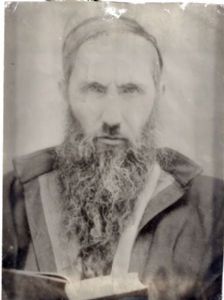A Short Tribute
Hacham Joseph Nachmias, son of David, was born in Marrakesh, Morocco. He learned Torah from Hacham David Sabbah in Marrakesh, and Hacham Israel Abuhatzeira, the Baba Sali, would often visit him. He apparently suffered from an eye disease but nevertheless made the effort to study Torah and went to great lengths to have his book published, traveling to various Moroccan communities to raise the funds required, as he notes in his book’s introduction.
His book, Yoseph Chen, contains sermons on the Torah and additional topics, and was published in Tunis in 1915. Along with his book, he had Moreh Tzedek, his teacher and master Hacham David Sabbah’s book of halakhic renewal on Shulchan Aruch, published, as well as an addendum containing the wording for scores of deeds and writs prepared according to the Marrakesh tradition. He also added several pages of texts for amulets and remedies in Arabic and eight piyutim that he composed. A new edition of the book was recently published by the author’s grandson.
Hacham Joseph Nachmias passed away on 17 Kislev, 5696 (1936).
A few quotes from the Rabbi on 'Torah Study' in which he explains how “Thou shalt not kill” applies to teachers whose mouths remains closed and to those who are not teachers yet open their mouths…
The Talmud says that a student who has qualified as a teacher and does not teach transgresses ‘Thou shalt not kill’, and the opposite is true as well; a person who is not qualified to teach and teaches - also transgresses ‘Thou shalt not kill’. This is why the niqqud vowels on ‘Thou shalt not kill’ sometimes have a dot in the patach (open) and sometimes in the kamatz (closed). This hints that ‘Thou shalt not kill’ applies to a person who has qualified to teach and keeps his mouth 'closed' without teaching, and to a person who has not qualified as a teacher and teaches – 'opens' his mouth. That is why there is a dot in both the patach and the kamatz. What is the reason behind the transgression? The attribute of pride, the worst of attributes in all transgressions. For the right thing is that one who has attained qualification to teach should teach others. But the person does not teach - out of pride; and the one who has not qualified and must learn from others does not wish to do so - out of excess pride. The remedy to their ills is to transform pride into modesty; once they have become humble the one who has qualified to teach will teaches others, and the one who has not qualified will not, and must learn from others.
Yosef Chen, Breishit Torah Reading Portion, p. 78, published by the author’s grandchildren
